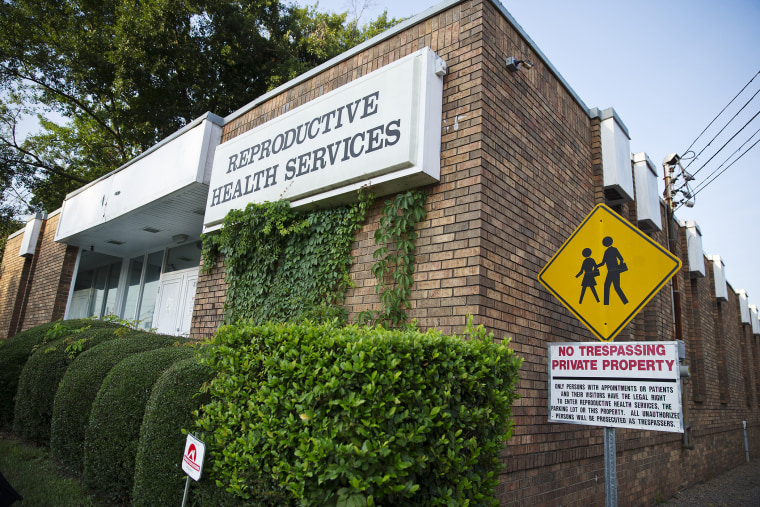The American Civil Liberties Union filed a lawsuit Wednesday in Alabama to block what appears to be the nation's most restrictive law targeting teenagers who seek an abortion. That law, which took effect in July, opens the door to the district attorney calling witnesses in a teenager's life to weigh in on whether she is fit to decide to have an abortion -- and includes the appointment of an attorney for the fetus.
Alabama has had a law on the books since 1987 requiring that at least one parent consent before a minor gets an abortion. The Supreme Court has upheld such laws as long as there is a process in place for teens to go to court instead and argue their case before the judge, known as judicial bypass. Anti-abortion legislators have been trying to find a way to make that judicial bypass more difficult.
The law requires that the district attorney be notified each time a teen is trying to get a judicial bypass for an abortion, whose task is to “not only to . . . protect the rights of the minor mother, but also to protect the state’s public policy to protect unborn life,” according to the Alabama law's text.
According to the ACLU's court filing, the law gives both the district attorney and the fetus's appointed lawyer the "power to subpoena any witness (whether that be the minor’s teacher, her employer, her aunt, or her boyfriend) to testify against the minor at the bypass hearing." As the suit points out, this would vastly undo the confidentiality that is supposed to be a part of these proceedings. The law also allows the other parties to delay the hearing, which could potentially mean missing the gestational age cutoff for an abortion.
"Some minors who participate in a judicial bypass process that breaches their confidentiality will be abused, thrown out of their homes, or prevented from having an abortion. Other minors will be deterred from seeking a bypass, and will resort to illegal and unsafe abortions, or will be forced to seek parental consent even if it is not safe to do so," the ACLU said in its filing. The attorneys also noted that most minors choose on their own to notify their parents about an abortion, but that "when a minor does not involve a parent in her decision to terminate her pregnancy, she generally has compelling reasons, including the fear of physical violence; of being forced to leave home; of being disowned; or of being forced to carry an unwanted pregnancy to term."
